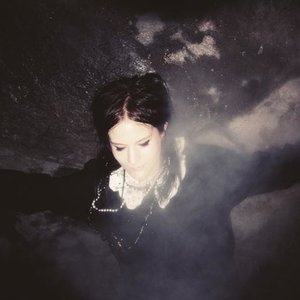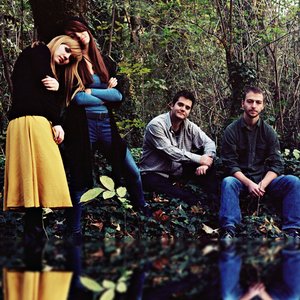Biografia
Le Days’ newest 16-track record (written in three parts), “Dead People On Tape”, makes Morrissey seem chipper. It may be time to crown Swedish singer-songwriter Daniel Hedin as the new minstrel of mope. This record is about mournfulness, losing control, the fading light, and the glory of torment, like that found in flamenco balladry. It’s also the sullen moods of this record, its sheer density, and creative peculiarity that makes this it so startlingly original. The first three songs are gradations of a colorless rainbow — greyed and lonely piano chords, black-pained vocals and quiet white spaces. “I Follow You” builds with the unquiet tremor of a Xiu Xiu piece, full of anguish and expanding dissonance. A bleating horn stutters in the distance, calling the damned. Drums are sporadic, then marching. Strings drone with tension, their tautness unraveling into clear notes, then disintegrating behind Daniel Hedin’s crumbling tremolo closing-phrase,“I hate you”. It’s marvelous.
No doubt, Le Days is going to be an acquired taste for most people, but that’s the case with all difficult music. Le Days uses an interesting mix of instruments, which include orgel (music box), sparse strings, and hitorgen, which sounds like a cross between accordion and harmonium. The passion displayed in each song is more complex than simple melancholia. It’s grand, epic, and stark, like the imaged soundtrack to some modern-day “Wuthering Heights”. The title track is a shadowy, powerful testimony to internal rupture. Like some of the music of Xiu Xiu and Jordaan Mason & the Horse Museum, the lyricism on Le Days’ “Dead People on Tape” works more as nightmarish psychology than narrative. During the title track, Hedin yells out, “It’s all in my mind / It’s all in my mind”, as a frenzy of sonic-guitar fuzz and smashing drums follow the wake of his vocals. It’s a song about excising demons, ending with these haunting, ambiguously-directed verses, “You have to get out / You have to get out / Anything you touch turns to dust.” And then this odd, powerhouse of a song ends in softly-restrained agony, dying off amid the sound of metallic scraping. The textures and arrangements on this record are extraordinarily eccentric. The musical forms are in a constant state of fluctuation — convulsing, collapsing, and barely sustaining. They avoid complete dissolution by adeptly hanging onto slight rhythms, half-broken melodies, while calling forth dead souls and shades of shades. The lyricism captivates with its strangeness.
Hedin speak-sings on “Fingernails” in a swirl of imagery, from cut fingernails, to death, love, and breathing. It’s an unyielding pulsing of pressure: “Fingernails crushing my core and my spinal line / Saying you finally got love / Fingernails laughing at me as I’m laying with broken bones / And gasping after my love …” For some music fans, this style of composition may seem melodramatic, overwrought, and even comically histrionic. But Le Days’ music is bravely subconscious, revealing and esoteric. The music is pretty and harsh. The songwriting beautifully weird and sometimes impenetrable. When Hedin sings “no one can get in or out from here” in “My Place”, it works both literally and as a metaphor for the mind. There’s a little bit of The Veils and Nick Cave in the dirge balladry of “My Place”. It’s a stunning piece of music, snaking its bluesy way with elegant guitar. Hedin comes to a discovery near the song’s conclusion: “She’s not coming to get you, she’s not.” His howling backing vocals, sounding like part forest wind and death-throe, fade into the growls of a beast. This album can feel like it lingers too long with 16 songs, like being tossed into dank dungeon with no hope of return. You get a hint of that in the deadening moroseness of the album title. And there’s a heavy dose of that French notion of death as part-and-parcel to love. But at its best, there are songs on “Dead People On Tape” that show more imagination than some entire albums released this year.
Note: Hedin is helped by a number of musicians on some of the tracks: Simon Björck plays hitorgan, orgel, drums and trumpet; Emma Skoog on cello; Andreas Grundel plays electric guitar, hitorgan and piano; Hugo Widmarck (big bass); Otto Widmarck (Electric guitar); Olle Trens (electric guitar) and Lars Erling (bass). – David D. Robbins Jr.
As descrições de artistas na Last.fm podem ser editadas por todas as pessoas. Sinta-se à vontade para contribuir!
Todo o texto inserido pelo usuário nesta página está disponível sob a licença Creative Commons Attribution/ShareAlike; termos adicionais podem ser aplicados.












